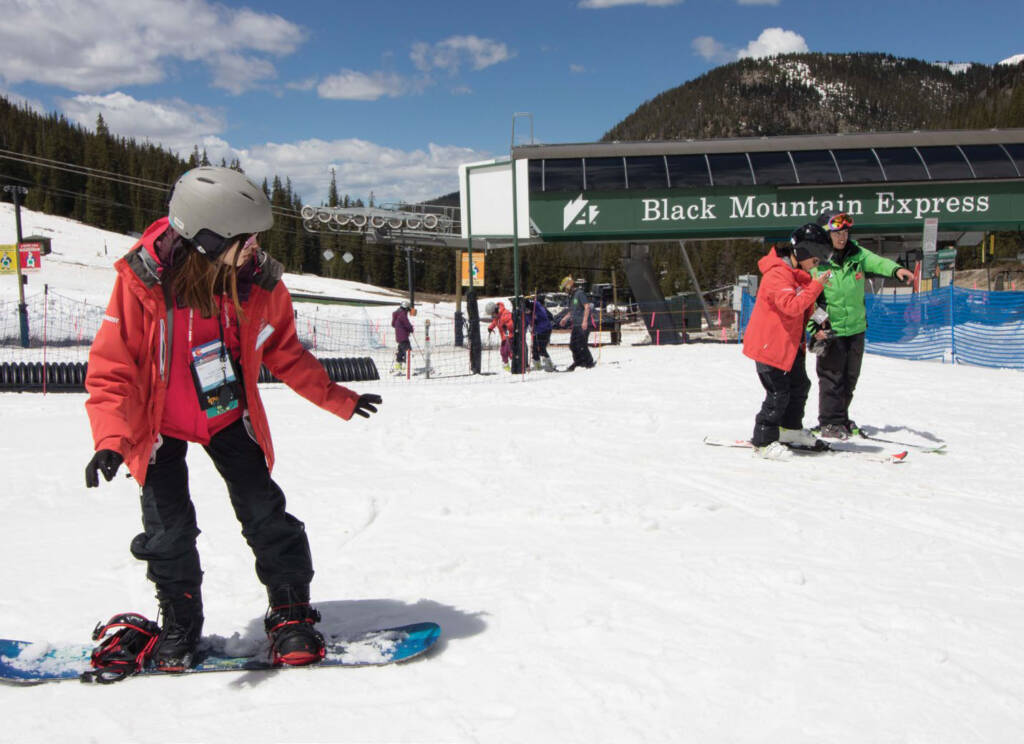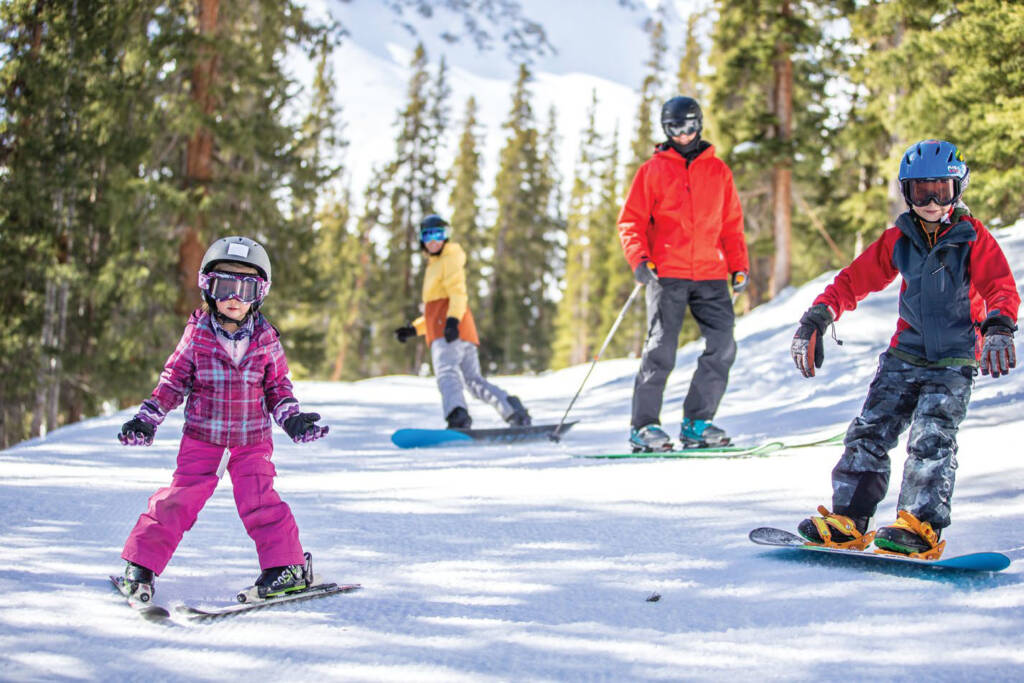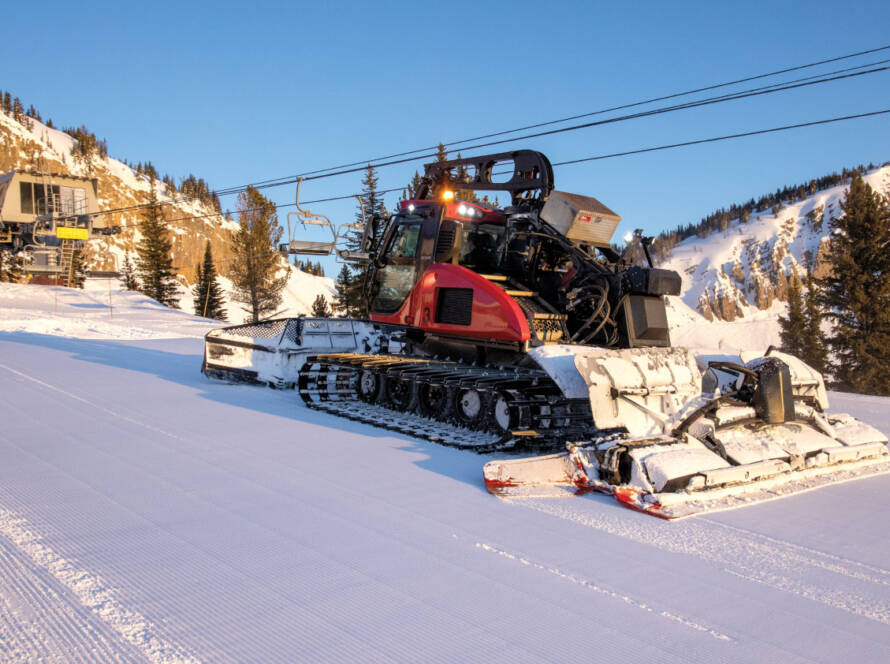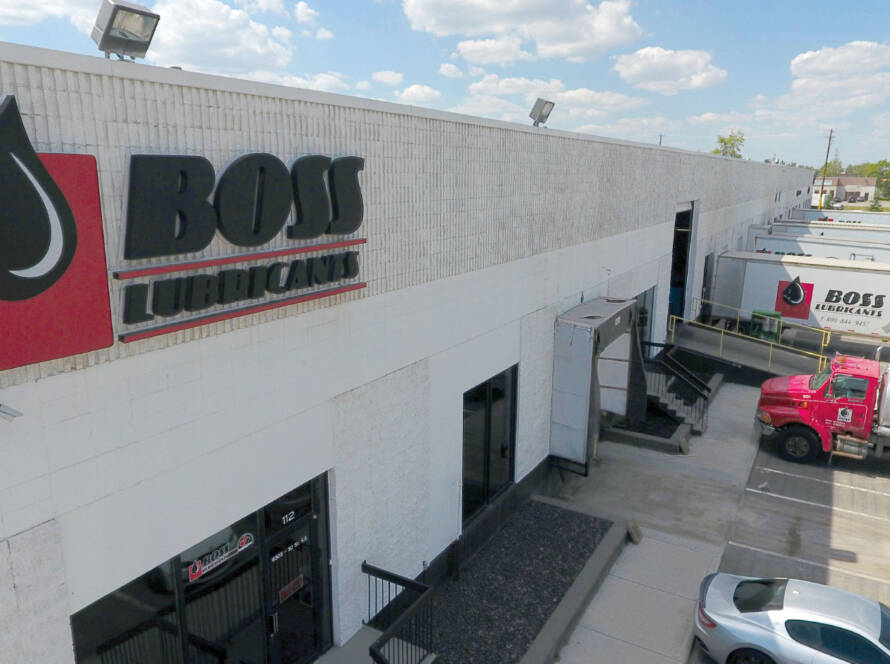When Mike Nathan joined the operating team at Arapahoe Basin Ski Area (commonly referred to as A-Basin) nine seasons ago, he held the well-known title of lift operator. More recently, his title changed to something more uncommon to those in the world of ski resort operations.
Nathan is the sustainability manager for A-Basin and he reports to the senior manager of sustainability Sha Miklas, who is also the manager of guest services. Allocating two staff members to the area of sustainability and having each department at A-Basin develop a sustainability plan specific to their own operations, emphasises the commitment A-Basin has placed to improving its environmental footprint.
Whether focusing on waste disposal, selecting grooming equipment or generating power, the management of A-Basin is striving to continually improve its environmental performance in order to provide enjoyment of the area for future generations of snow and mountain enthusiasts.
“At first, our work was done more on a seasonal basis, October through April, but we realized that we had the opportunity to have someone focusing on this area as his or her job,” Nathan said. “The fact that I’m able to be here in the summer when a lot of our high level planning and projects are happening is great because I can put forward these sustainability ideas. It’s really helped us guide our long term vision.”
The array consists of 30 solar panels capable of generating 8.26 kW of energy and provides approximately 95 percent of the energy that building uses.
A-Basin has always been known for doing things differently. Located 68 miles west of Denver in Summit County, Colo., A-Basin is known more as a ski area than a big-time ski resort because of the absence of some of the typical resort options like on-site lodging or restaurants. A-Basin is famous for being a ski area with one of the highest elevations in Colorado – its summit elevation is 13,050 feet. Another unique aspect of A-Basin is its operating schedule. The area is open from mid-October to early June, which is one of the longest seasons in North America; during Nathan’s first year he said the resort stayed open until the fourth of July.
The fact that the ski area is committed to sustainability is certainly an area in which it stands out.
“Ultimately, whether we’re composting and throwing less away or using less energy by changing light bulbs, it saves us money on our utility bills or at least is no more expensive than a business-as-usual approach,” he said. “Beyond that, I would say that our motivation is that we’re an outdoor recreation business that relies on semi-stable or predicable weather. We think that we need to walk the walk and talk the talk. We’re fairly outspoken in working with other environmental groups on advocacy and policy work. I think we can’t really justify having that message without doing it ourselves on the ground and living what we’re preaching.”
He added that the resort’s guests tend to be receptive to environmental ideas and these projects have an impact on them and provide ideas that they can take home.
Airless snowmaking introduced
A-Basin made its first major change in 2003 when it installed a highly-efficient, mostly airless snowmaking system that uses only a portion of the energy that a conventional snowmaking system would.
Nathan said that a few years after he joined the team, management really began escalating its sustainability efforts. He said the drive was fuelled by Miklas, who first encouraged management to make recycling and composting a priority at the ski area.
“Initially, we just recycled and composted in back of house prep areas in our kitchen, but we started expanding this program out to the public,” Nathan said. “Now, anywhere a guest or employee can find a garbage bin, there’s a recycle and compost bin in the same place. Waste reduction has been a huge success here. The amount of waste we recycle or compost rather than put in the landfill is up to about 45 percent of our total waste, which is about twice the Summit County average and significantly higher than the Colorado or national average. We’re pretty proud of that especially considering we’re such a visitor-based business.”

Nathan said the recycling/composing program was a good start to become engaged with the guests around sustainability and build some knowledge on that end, while moving forward with other initiatives.
A-Basin completed a lighting retrofit in 2012 that saw over 500 light bulbs in the base area and on-mountain facilities replaced with newer, more efficient bulbs. Incandescent bulbs were upgraded to CFLs and LEDs, while fluorescent T12 bulbs were switched to T8s. These upgrades have saved more than 53,000 kWh and 37 tons of CO2 emissions each year.
In 2013, the ski area completed a massive upgrade to its Base Area Lodge, incorporating energy-saving vestibules at all entrances. Using two sets of swinging doors, these vestibules prevent cold outside air from infiltrating the building whenever the doors open, leading to significant energy savings.
Waste furnace installed
The company installed a CleanBurn Technologies furnace in 2014. The furnace is able to burn waste motor oil, hydraulic fluid and other engine waste to heat the building. The company utilizes fuel from oil changes from its commercial fleet and personal vehicles and the auxiliary motors on its chairlifts and other sources, meaning it can purchase less and less propane each year. It also limits the need for hauling its waste oil off-site via costly, polluting trucks.
Arguably one of the most interesting initiatives of A-Basin has been its commitment to solar energy. It started with the construction of the Kids Center in 2015. The south roof features a 13.5 kW solar array, which produces about 15 MW of solar energy per season. Last year, a second solar array was installed at the summit, atop the Snowplume Refuge/Patrol Headquarters building. The array consists of 30 solar panels capable of generating 8.26kW of energy and provides approximately 95 percent of the energy that building uses.
All of their new goals will contribute to their overall goal of becoming completely carbon neutral by 2025.
As far as A-Basin management has determined, the solar panel at the summit is the highest mounted one at a ski area anywhere in the world and the second highest of any location in U.S. (the solar panel installed in Hawaii’s Mauna Kea Observatories is located about 13,800 feet high).
“Adding solar panels, as is the case with any project we undertake up here, is a challenge because we’re up so high,” Nathan said. “Installing solar panels on a building at almost 13,000 feet up definitely seemed like a challenge, but the solar installers made it a pretty smooth process. The workers installed them by hand and carried them up to the roof and put them in place. Dealing with new snowfall has been a challenge, because the snow can sit on top of the solar panels. Sometimes you have to climb to the roof and shovel off the snow.”
Most recently, A-Basin was able to begin sourcing 100 percent of its snowmaking electricity use, about 20 percent of the area’s total usage, directly from solar energy through Xcel Energy’s Renewable Connect program. The large chunk of renewable energy procured through this program, along with Xcel’s commitment to adding more renewables to the Colorado energy grid, will help them continue to emphasize renewable power at the ski area.
A-Basin has also worked hard to incorporate its sustainability message into its kids’ lessons and programs with Ace’s Wild Adventure. Situated in several areas across the mountain, these educational signs offer information pertaining to local plants, animals and mountain ecosystems in kid-friendly terms. The areas correspond to collector cards that kids can accumulate over the course of their ski or ride lessons and challenge young skiers to cultivate a strong environmental ethic with fun and easy sustainability efforts.
Sustainability recognition
Over the years A-Basin has been recognized for its sustainability projects. In 2014, the National Ski Areas Association awarded A-Basin with the Golden Eagle – Waste Reduction award, recognizing the ski area’s strong waste reduction efforts through recycling, composting and implementing reusable dishware and cutlery.
In 2017, A-Basin received the Outstanding Business Recycling Program award from the Colorado Association for Recycling. The award is given annually to the Colorado business best exemplifying both community leadership in and strong commitment to innovation in their waste reduction efforts.


Moving forward, Nathan said A-Basin has some more exciting initiatives planned. The company has set a goal of using 100 percent renewable energy and diverting 75 percent of its waste from landfills by 2025; along with other lofty sustainability goals addressing water conservation, transportation and sustainable purchasing. All of their new goals will contribute to their overall goal of becoming completely carbon neutral by 2025.
To fully achieve its sustainability goals Nathan said A-Basin is exploring all angles. Employees, for example, are encouraged to purchase from environmentally-responsible companies that manufacture environmentally-friendly products. Over the years A-Basin employees have supported the strong work of two Summit County open-space organizations: Friends of the Eagle’s Nest Wilderness and the Continental Divide Land Trust. They also have a strong partnership with their local environmental non-profit, High Country Conservation Center as well as with the advocacy group Protect Our Winters.
A-Basin strongly encourages guests and employees to limit vehicle idle times to just five minutes for gasoline-powered vehicles and 15 minutes for diesel vehicles as per the National Ski Area Association’s “No Idling Policy.” A-Basin is promoting carpooling by converting a large portion of its primary parking lot into a carpool-only parking during busier days.
“The focus for us is absolutely on changing people’s behaviour, whether that’s guests or employees,” he said. “We think it’s far more impactful to get people to become environmental advocates rather than us just buying renewable energy credits and offsetting all of our usage.”


